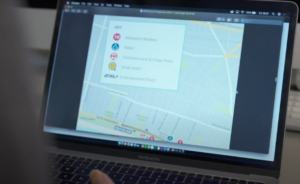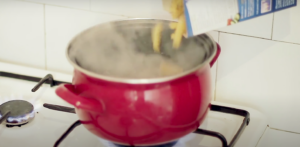Race day preparations, especially for big events like marathons, involve a delicate balance of physical training, mental focus, and proper rest. One of the most crucial aspects of preparing for a marathon is ensuring that your body is well-rested and relaxed in the days leading up to the event. Many runners make the mistake of overexerting themselves or not taking enough time to allow their muscles and mind to fully recover. Proper rest is essential for peak performance, as it helps your body repair, rehydrate, and restore energy stores so that you can give your best effort on race day.
Resting Ideas Before a Big Running Event
The most important rest strategy in the days prior to a marathon is to ensure you get enough sleep. Sleep is the body’s natural recovery mechanism, and adequate rest (typically 7-9 hours a night) helps to repair muscles, boost immune function, and improve overall cognitive function. In the week before a marathon, you should prioritize sleep and aim for restful nights, especially in the last 3-4 nights before race day. Napping during the day can also be beneficial, particularly if you’re traveling or experiencing jet lag, as it can help top off your energy reserves.

In addition to sleep, relaxation techniques like deep breathing, yoga, or meditation can be incredibly helpful in managing pre-race anxiety and calming your mind. Marathon day can be stressful, so practicing mindfulness or engaging in light stretching in the days before the race can help alleviate any tension. Taking time to unwind with a good book or watching a movie you enjoy can also reduce the mental strain and help prevent stress from building up. Staying off your feet during the final two days before the race can also promote recovery, as long as it doesn’t interfere with light jogging or easy walking to stay loose.
Traveling for Marathons
 Many runners travel long distances for marathons, and this can add an additional layer of stress to race day. Traveling, especially if it involves crossing time zones or dealing with the unfamiliarity of a new city, can be physically and mentally taxing. One of the key aspects of minimizing travel-related stress is to arrive in the race city as early as possible. Ideally, you should plan to arrive at least two days before the marathon, giving your body enough time to acclimate to the new environment. This allows you to get settled, adjust to any time zone differences, and avoid feeling rushed or overwhelmed in the lead-up to the race.
Many runners travel long distances for marathons, and this can add an additional layer of stress to race day. Traveling, especially if it involves crossing time zones or dealing with the unfamiliarity of a new city, can be physically and mentally taxing. One of the key aspects of minimizing travel-related stress is to arrive in the race city as early as possible. Ideally, you should plan to arrive at least two days before the marathon, giving your body enough time to acclimate to the new environment. This allows you to get settled, adjust to any time zone differences, and avoid feeling rushed or overwhelmed in the lead-up to the race.
Arriving early also provides ample time to familiarize yourself with the race course, pick up your race bib and packet, and explore the race venue without the stress of last-minute rushing. This can be incredibly beneficial for your mental clarity, as having a clear plan for race day can reduce anxiety and help you focus on the task at hand.
Dealing With Race Day Anxiety
Moreover, traveling too close to the race can lead to “relocation stress syndrome dementia,” a term that refers to the negative impact of a rushed or stressful relocation on one’s physical and mental state. For marathoners, this kind of stress can manifest in physical fatigue, difficulty sleeping, and even confusion or lack of focus—all of which can significantly impact your race performance. Being able to relax and adjust to your surroundings before the race helps prevent these issues and allows you to perform your best.
 Race day preparations are not just about the physical training you do in the weeks leading up to the event; they also involve ensuring proper rest and managing travel-related stress. Resting strategies, such as getting plenty of sleep, practicing relaxation techniques, and avoiding overexertion, can make a big difference in how you feel on race day. Additionally, traveling early and arriving at the race city with plenty of time to acclimate helps to reduce the potential negative effects of relocation stress syndrome. By focusing on both your physical and mental preparation, you can set yourself up for success and perform at your best during the marathon.
Race day preparations are not just about the physical training you do in the weeks leading up to the event; they also involve ensuring proper rest and managing travel-related stress. Resting strategies, such as getting plenty of sleep, practicing relaxation techniques, and avoiding overexertion, can make a big difference in how you feel on race day. Additionally, traveling early and arriving at the race city with plenty of time to acclimate helps to reduce the potential negative effects of relocation stress syndrome. By focusing on both your physical and mental preparation, you can set yourself up for success and perform at your best during the marathon.